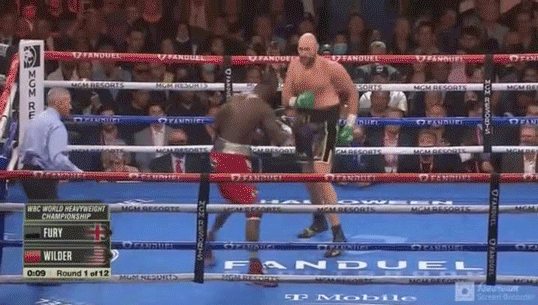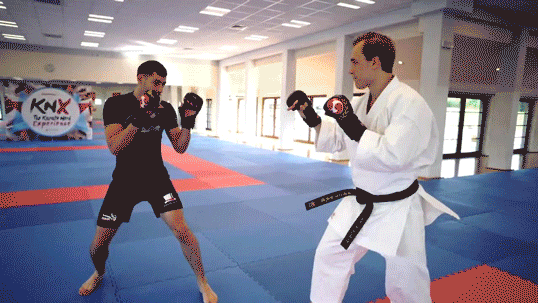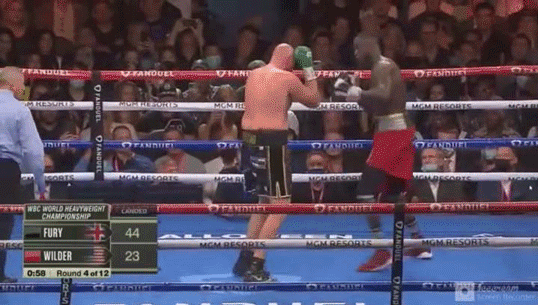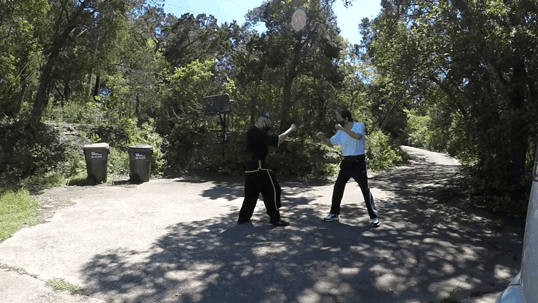oragami_itto wrote:... Speaking directly to the point of the thread, I believe there is a certain risk in drilling combos. You see it in fights all the time. The combo begins, the opponent changes, the combo continues because it's been so deeply ingrained in muscle memory. It's a one touch process that has to complete. A set of synapses trained to fire together. Perceptive opponents pick up on those patterns. The best ones read it in real time true first time and respond immediately to changing conditions. If you rely on combos they need to have fail-safes built in.
The OP combo begins, the opponent doesn't overcommit or block your jab. However,
you "drop your leading arm to block your opponent's jab (overcommit)." The opponent punches your face. The OP combo fails.
Instead, Fury uses the same timing I explained with clips in
this previous thread, when the subject "initial stage" came up. Fury controls Wilder's center, double weights him and traps with pulling hand and punch (Lop Sao Da) to Wilder's face.
Fury's combo:
1. Fury takes
casual, small side steps to the left creating a superior position, which leads Wilder to follow.
2. Fury takes a
quick, large shuffle step forward,
timing Wilder's double weight while eliminating trading punches.
3. Fury traps Wilder's right rear hand and punches Wilder's face (Lop Sao Da)
before Wilder can transfer his weight to the front foot.
Note that, instead of trapping/punch, Fury could have issued head control, front cut/osoto gari, irimi nage, etc., with the same timing under different rules:

Rokas fails to grab Jesse, because Jesse is able to yield by pushing off his front foot. Using Fury's timing (double weight) and quick shuffle
steps, Rokas has a better chance of clinching, head control, etc:

Here Fury attempts to issue (steps) when Wilder's front foot is already planted ("end stage") missing the timing of Wilder's double weight, while Wilder knocks down Fury:









